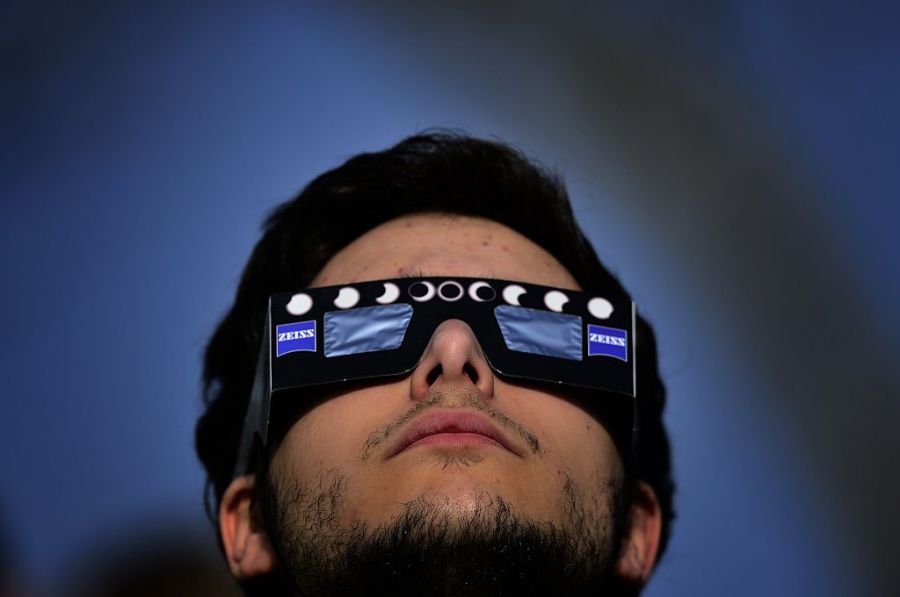Optometrist discusses symptoms of eclipse-related eye damage

INDIANAPOLIS — After watching Monday’s total solar eclipse, some people in central Indiana may be concerned if they begin to notice any eye discomfort.
Online searches for eye pain went up after the eclipse. Here’s what optometrists said people should look out for if they didn’t wear proper eye protection.
For only a few minutes on Monday, eclipse viewers in the path of totality were able to safely look up and take in the once-in-a-lifetime sight with naked eyes. But doing so before or after without eclipse glasses, even for a matter of seconds, could have caused damage you might not begin to notice until a day later.
“Typically, it’s painless,” Dr. Judy Walrath, an optometrist and director of professional relations at Dr. Tavel Family Eye Care, explained. “What you’re going to notice is a decrease in vision, so blurry vision. You can have distortion in your vision – waviness, greyed-out spots, or also a permanent spot that seems to move with your vision, unlike a floater that can float around in different places.”
Experts say those symptoms of solar retinopathy could appear within minutes, or up to a couple of days following direct exposure to sunlight, similar to a sunburn.
Dr. Walrath said people can schedule an eye exam if they’re worried, but there is no treatment for this kind of damage.
“Some people do gain some of the lines of vision back over time, so it’s hard to predict who will respond, but there’s nothing treatment-wise to have a more favorable outcome,” Walrath said.
Walrath said she wouldn’t be surprised to receive a spike in calls from patients over the next few days. But before you pick up the phone, try this:
“Do a little experiment with yourself and close one eye. Look at the vision there, make sure there isn’t a spot or waviness. Close the other eye so you can get that comparison with each eye monocularly instead of letting your brain put the image together,” Walrath said.
She also said children and younger adults face a higher risk of solar retinopathy because their lenses let in more light.
“If they’re due and we just had the eclipse and that worry is on your mind as a parent, just schedule a full exam to get everything checked out,” Walrath added. “And we can certainly tell by the amount of vision they have, which should be correspondent to a normal level where their best-corrected acuity is. And we can do additional testing if we’re concerned.”

Comments are closed.